The center and its partners hosted a week of events celebrating, promoting, and connecting the critical environmental work happening throughout the WashU community and beyond.
The kick-off week began on Monday with a science communications Q&A with students and Assembly Series talk by Pulitzer Prize-winning author and journalist Elizabeth Kolbert. The week continued with workshops, panels and guest lectures exploring the breadth and depth of challenges, research, and efforts to protect the environment.
Monday, February 12
Science Communication: Q&A with American Journalist Elizabeth Kolbert
University students and faculty as well as students from a local high school joined the one-hour Q&A session where they had the opportunity to discuss the writing with the author, American Journalist Elizabeth Kolbert. She is best known for her Pulitzer Prize-winning book The Sixth Extinction: An Unnatural History, and as an observer and commentator on the environment for The New Yorker magazine.
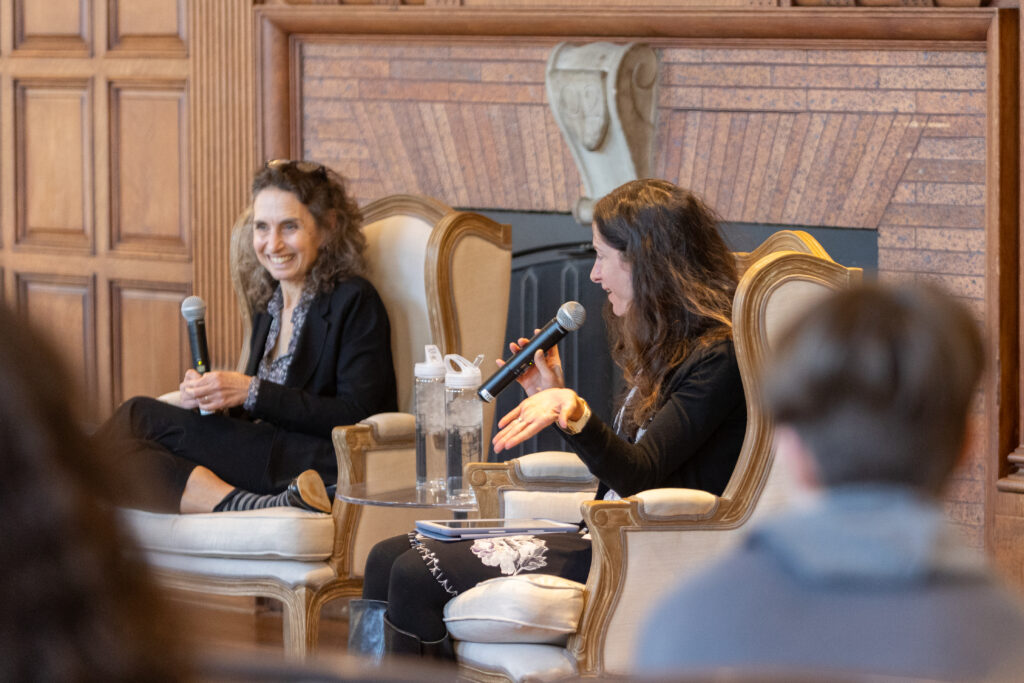
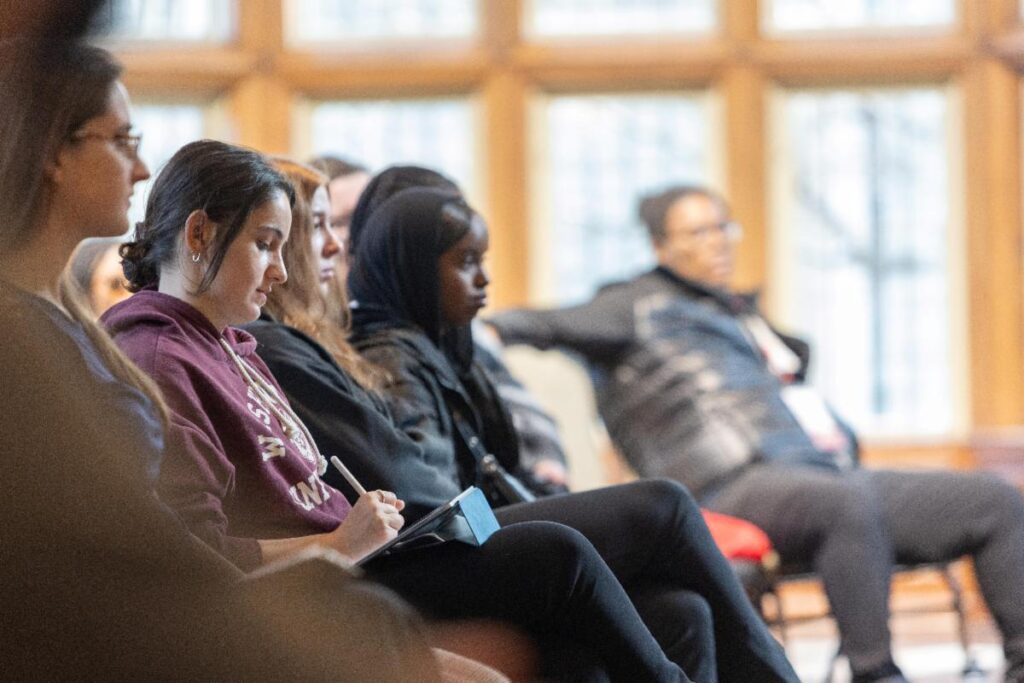
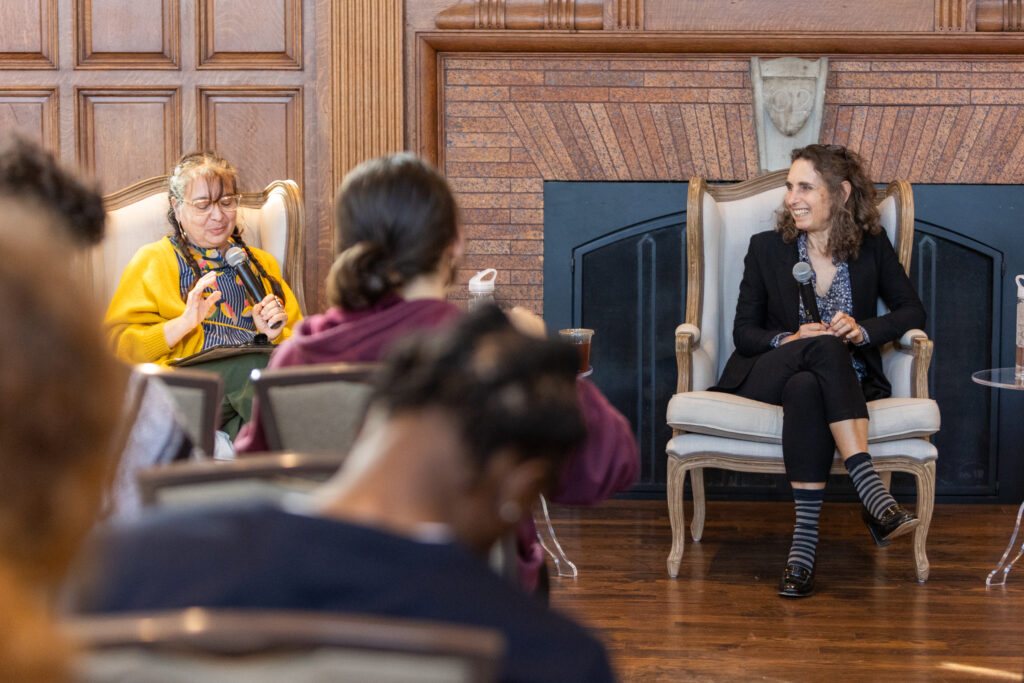
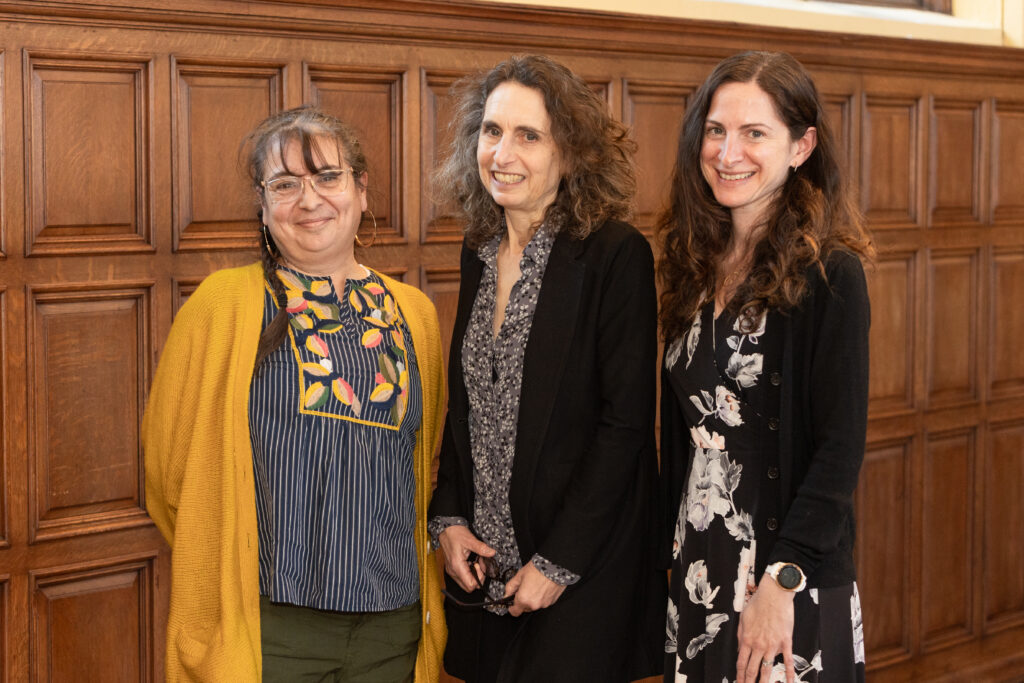
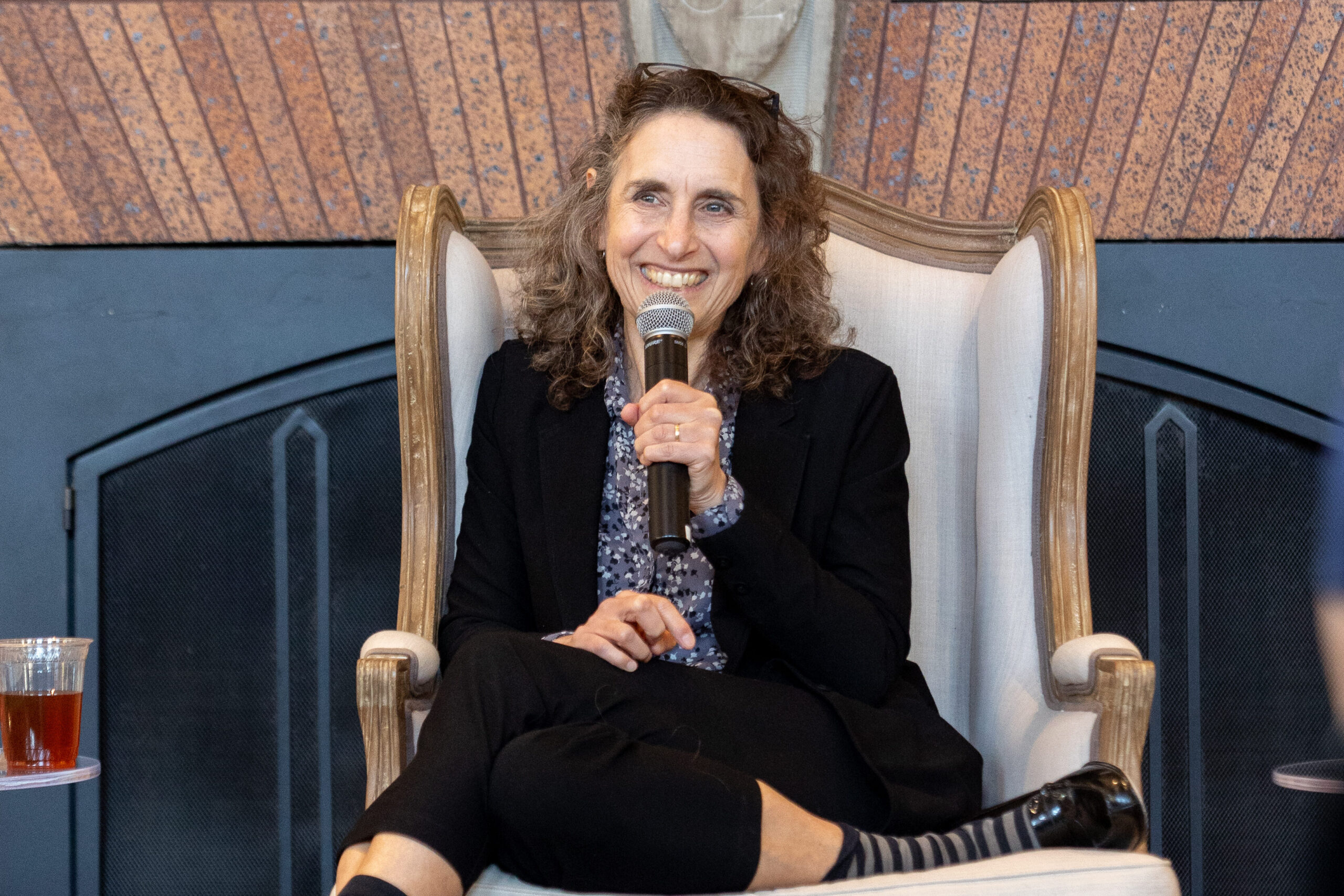
Assembly Series “The Fate of the Earth”– A talk by Pulitzer Prize-winning author Elizabeth Kolbert
The history of life on Earth has been described as long periods of boredom interrupted occasionally by panic. In her talk, “The Fate of the Earth,” Elizabeth Kolbert will discuss the current biodiversity crisis in the context of the great mass extinctions of the past. Why do humans pose such a threat to the other species on the planet and what can be done to contain this threat?
Elizabeth Kolbert’s Pulitzer Prize-winning “The Sixth Extinction: An Unnatural History,” is a book about mass extinctions that weaves intellectual and natural history with reporting in the field began as an article in The New Yorker. It was a New York Times 2014 Top Ten Best Book of the Year, is number one on the Guardian’s list of the 100 Best Nonfiction Books of all time, and won the 2015 Pulitzer Prize in the General Nonfiction category. A 10th Anniversary Edition with a new epilogue will be published in spring, 2024.
Her most recent book, “Under a White Sky: The Nature of the Future,” is about humanity’s harmful impact on the environment and ideas to rectify that harm. This national bestseller was named one of the best books of the year by the Washington Post, Time, Esquire, Smithsonian Magazine, Publishers Weekly, Kirkus Reviews, and Library Journal, and recommended by Barack Obama and Bill Gates.
Kolbert has received numerous awards and honors and has been a staff writer for The New Yorker since 1999. Her essays have appeared in The New York Times Magazine, Vogue, and Mother Jones, and have been anthologized in The Best American Science and Nature Writing and The Best American Political Writing.
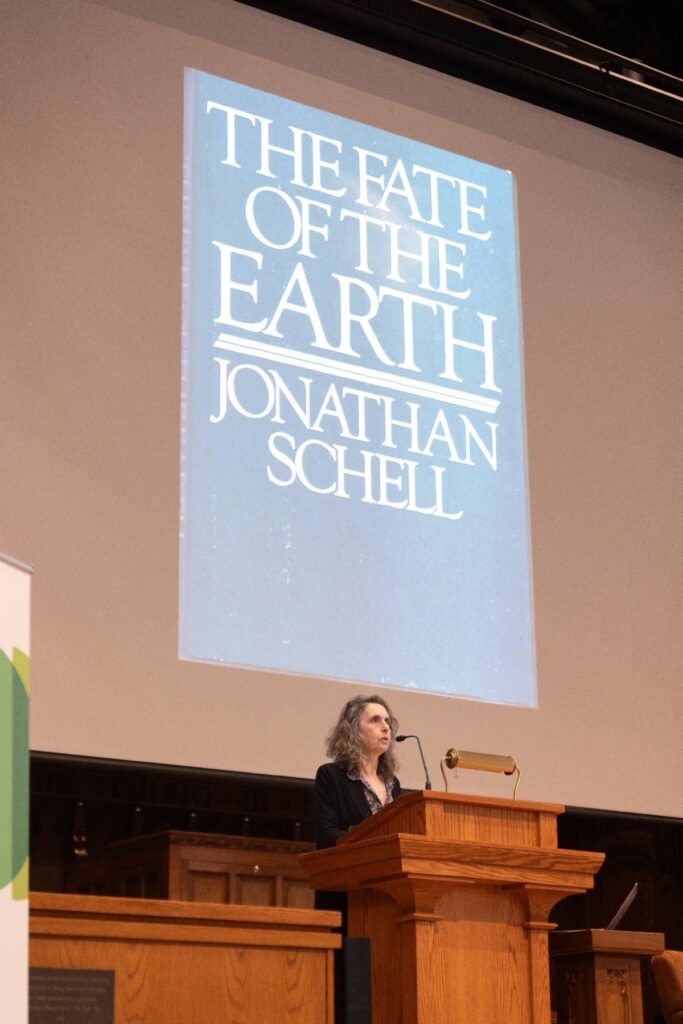
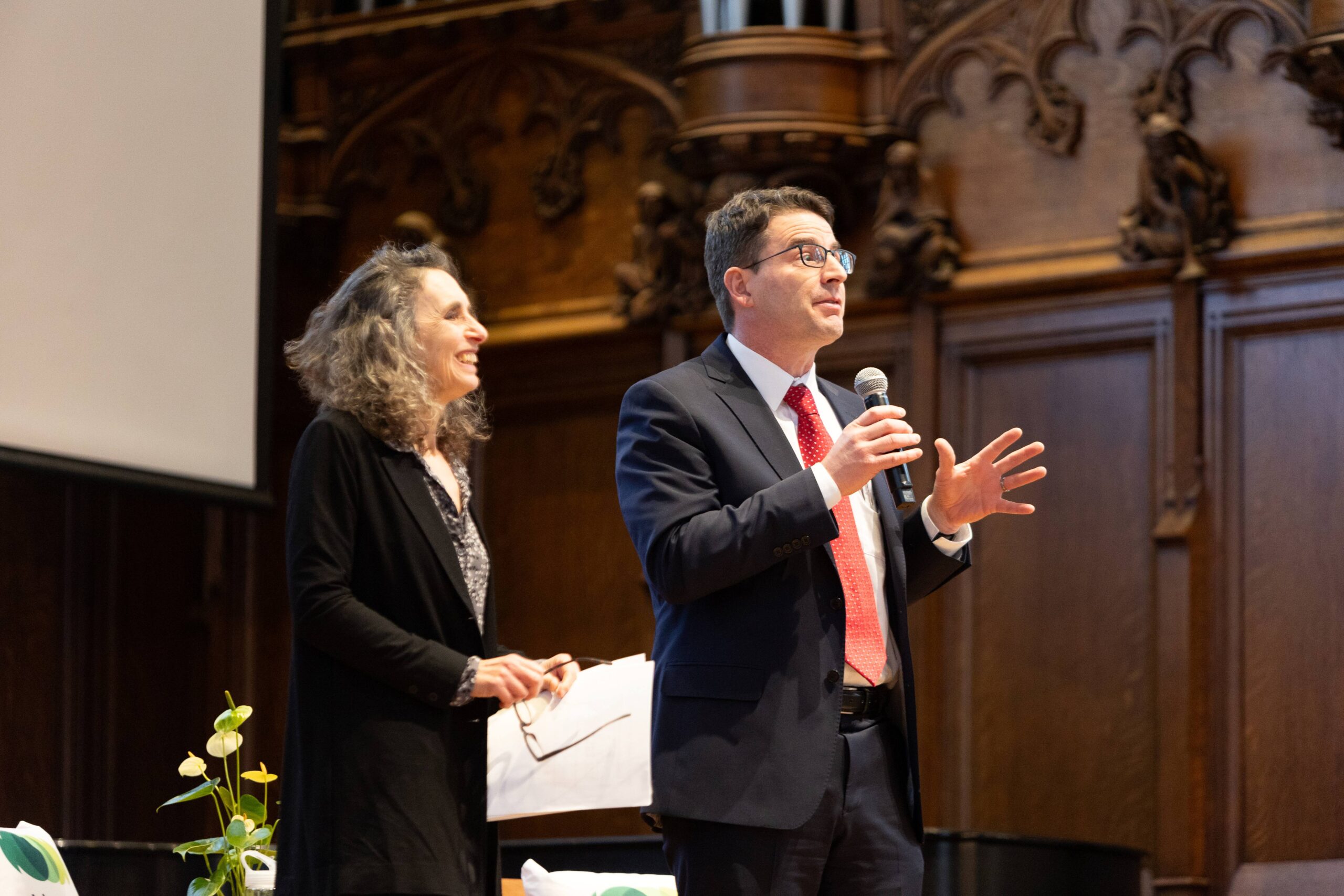
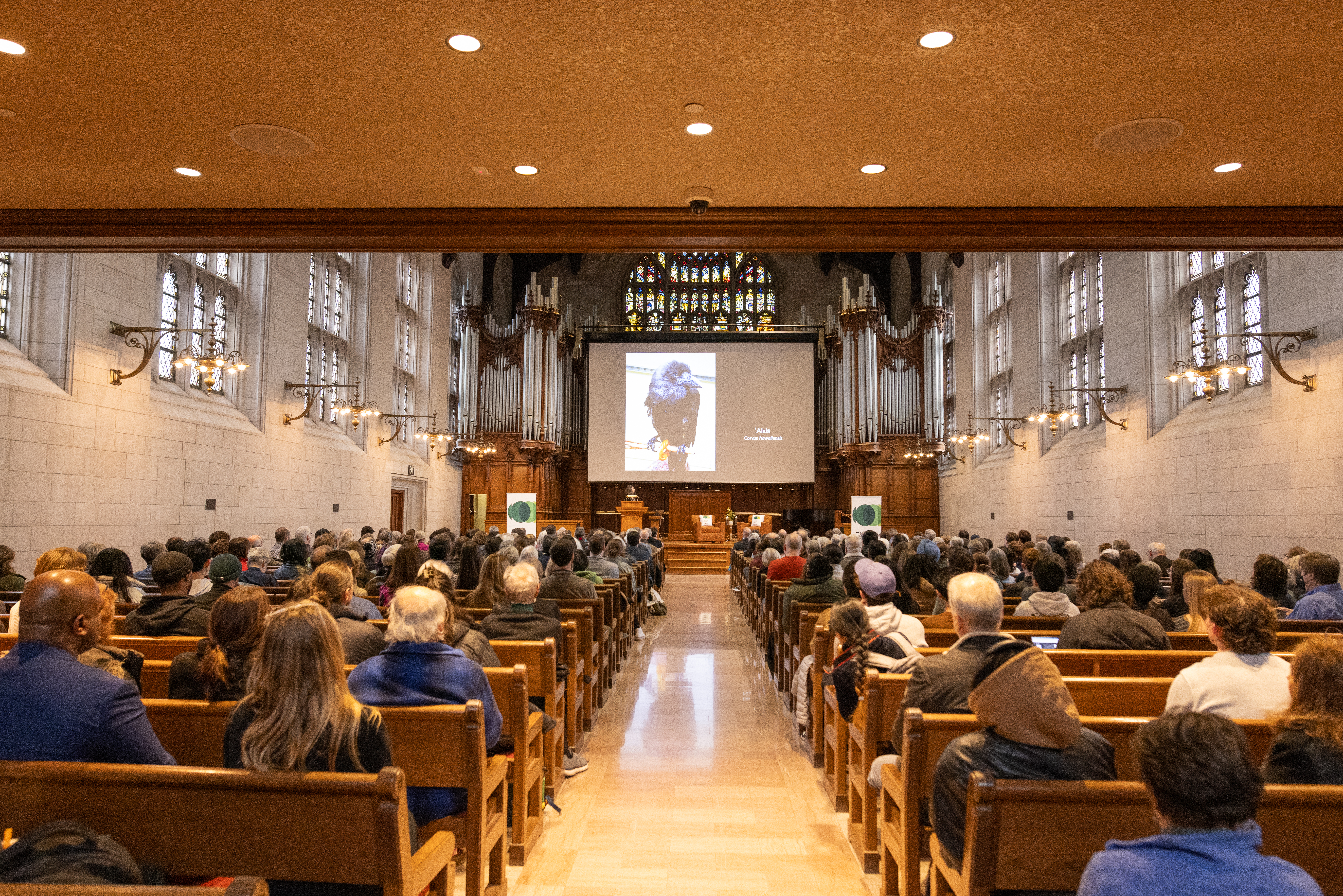
Tuesday, February 13
Public Health Speaker Series with Viniece Jennings, PhD
Hosted by the Brown School Public Health Speaker Series
Viniece Jennings, PhD is nationally recognized for her innovative research on urban green spaces and public health. She often explores urban green space and health in the context of ecosystem services, environmental justice, and social determinants of health.
Her research was recognized as top research for practice by the National Recreation and Parks Association.
Training in Science Communication and Science Storytelling
Sharing your research effectively is important when connecting with communities, gaining funding for your work, and ultimately making an impact on climate action. To build these skills, researchers can learn about and apply concepts in storytelling, neuroscience, and performance arts. In this session, participants worked through a process based on National Geographic’s course for storytelling and research from Ted Talks.
Participants were guided through a brief, simple activity, using movement to activate sensory-motor experiential pathways. This movement-based method is a way to stimulate novel ideas by disrupting habitual perceptions and catalyze new lines of thought. This interactive session was designed for researchers as an experiential learning with practice and feedback with experts and peers.
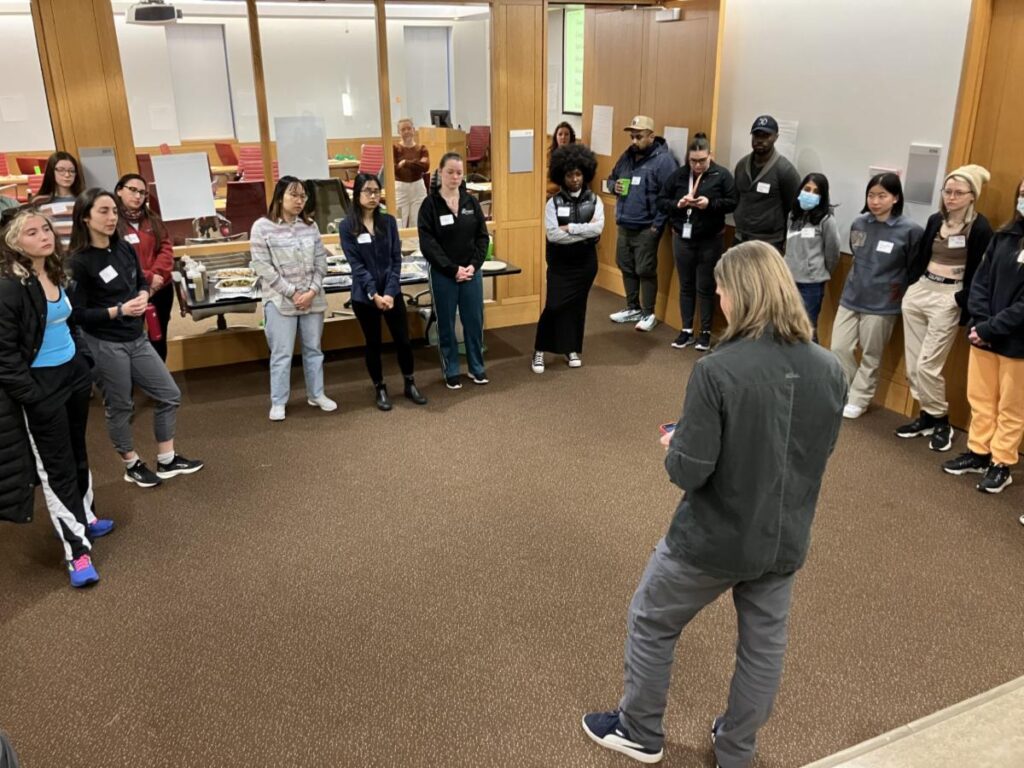
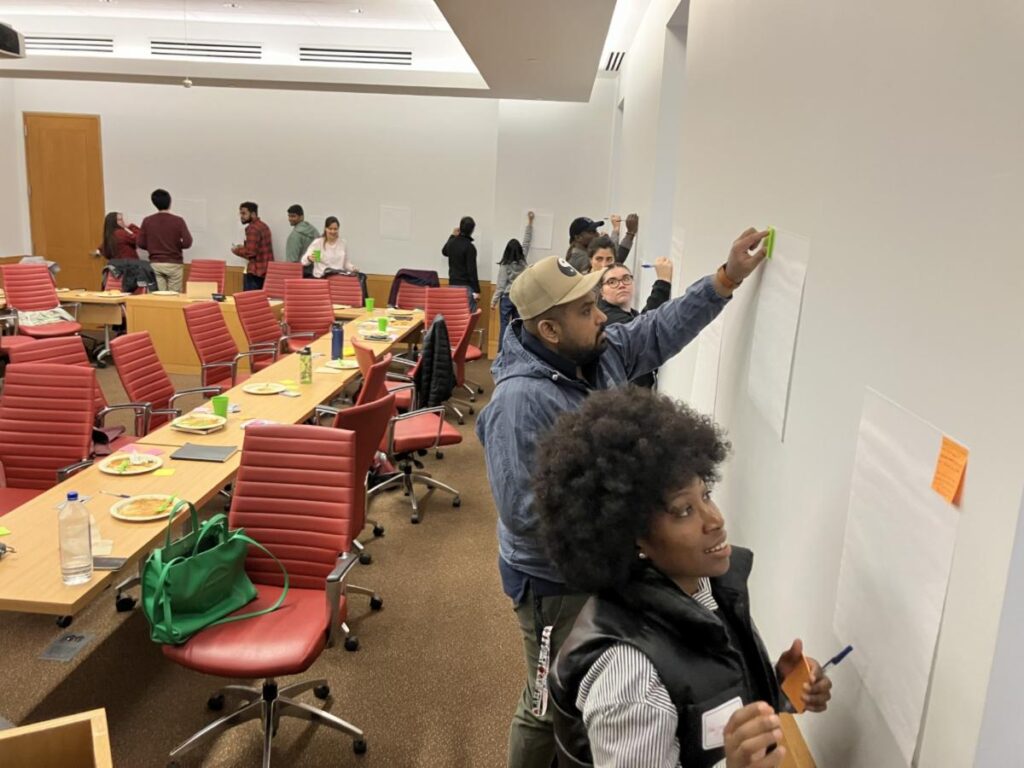
Wednesday, February 14
Passionate about Plastics? The State of Plastics in Consumer Goods and the Environment – Impacts and Actions
Cohosted with the Office of Sustainability
Attendees took a deep dive into the world of consumer plastics with our panel of experts and examined sources, dispersal, and impacts, as well as responses on the global and local scale. Panelists each represented a different dimension of the complex challenge of plastic pollution and include: Marcus Foston, a researcher at WashU working with biologically synthesized materials (with the promise of replacing petroleum-based plastics), and Jenny Wendt, a local leader working on plastic pollution in the Mississippi River Plastic Pollution Initiative (who also attended the second session of the Intergovernmental Negotiating Committee that took place in 2023).
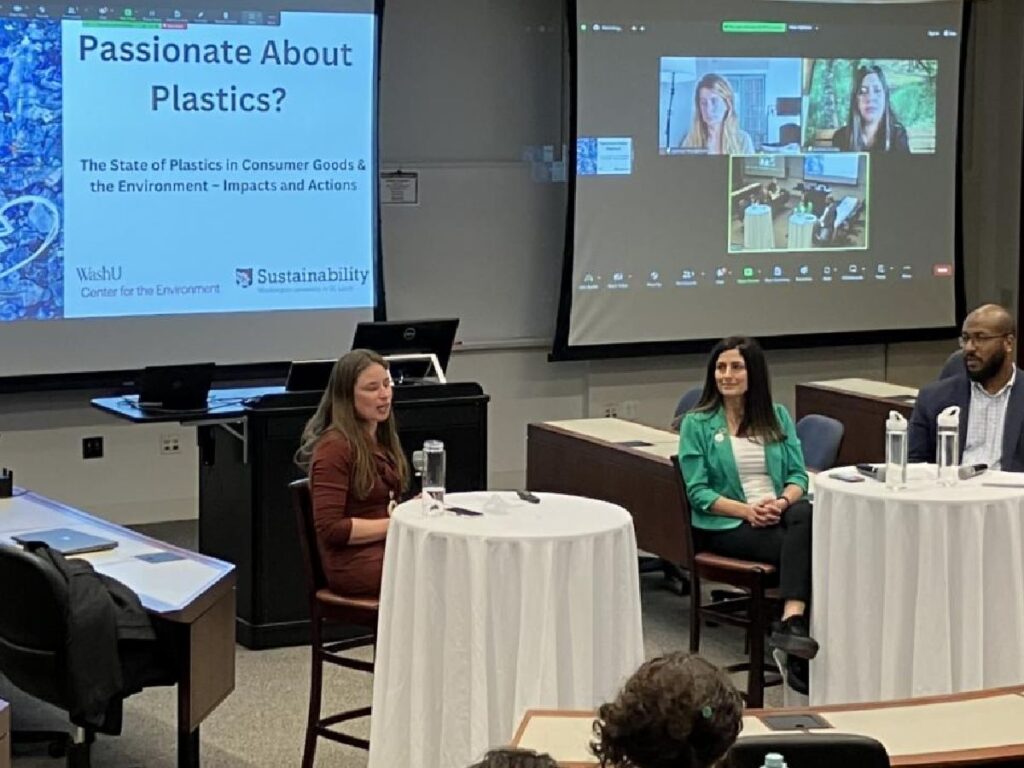
Thursday, February 15
Research Adventures from Madagascar
Cohosted with the Living Earth Collaborative
Madagascar, one of the world’s most important biodiversity hotspots, has experienced significant losses in plant and animal life. Human hardships are also evident arising from poverty, food insecurity, and infectious diseases. WashU, in collaboration with two leading institutions in St. Louis – the Missouri Botanical Garden and the St. Louis Zoo – has a rich history of research, capacity building, and community-based conservation efforts in Madagascar.
Panelists included Robbie Hart – Missouri Botanical Garden, Krista Milich – Department of Anthropology, Tabita Randrianaivony – Missouri Botanical Garden, Armand Randrianasolo – Missouri Botanical Garden, Fidy Rasambainarivo – St. Louis Zoo, Mahaliana, Froggi VanRiper – Environmental Studies Program, and Emily Wroblewski – Department of Anthropology
This roundtable event:
- Showcased the breadth and depth of this environmental work coalescing around themes of biodiversity and sustainable development
- Generated ideas for integrating the various projects for future research collaborations
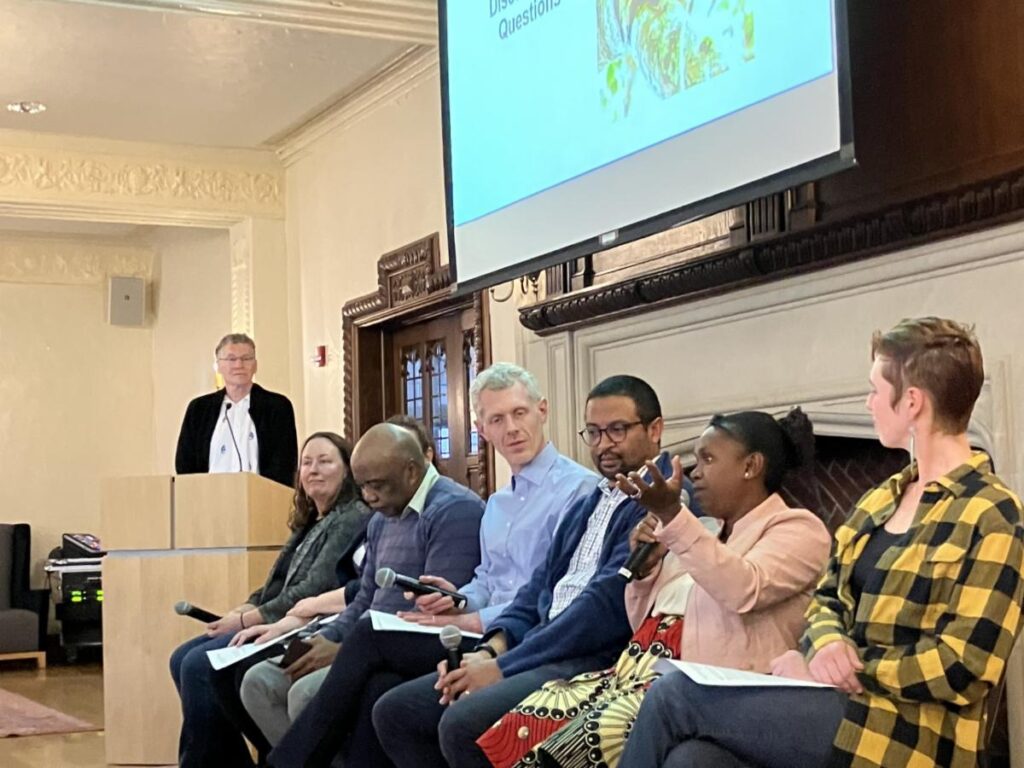
Friday, February 16
Bioinspired-strategies to address the PFAS problem” by Carla Ng from the University of Pittsburgh
Co-hosted with the Department of Energy, Environmental & Chemical Engineering
Per- and polyfluoroalkyl substances, or PFAS, have become some of the most widely discussed classes of environmental contaminants. Given their ubiquity and public attention, they can hardly be considered emerging chemicals any longer. They underlie nearly three quarters of a century of “better living through chemistry”—they made our frying pans non-stick, our upholstery and carpets stain-resistant, and our outdoor gear breathable, yet waterproof.
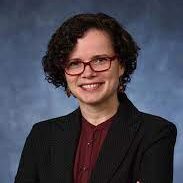
But now these same substances are dubbed “forever chemicals,” because those properties that made them so durable and useful in everyday products have made them extremely durable in the environment and surprisingly bioavailable and bioactive.
PFAS have been linked to multiple toxic effects, including cancer and reproductive impairment, and can be found in the blood of >99% of Americans and populations around the globe. Despite this long history of use and more recent notoriety, a number of key questions remain around how we deal with the PFAS problem. Can we treat PFAS as a class, and in what respects? What is it about the structures of specific PFAS that drive their biological activity? And, most importantly, can we identify ways to get biology to work for us to help tackle widespread PFAS contamination in water, soil, and organisms?
Dr. Carla Ng is an Associate Professor in the Department of Civil and Environmental Engineering at the University of Pittsburgh, with secondary appointments in Environmental and Occupational Health and in Chemical and Petroleum Engineering. She received her PhD in Chemical & Biological Engineering from Northwestern University in 2008. Her research focuses on the development of models and tools to evaluate the fate and effects of legacy and emerging chemicals in organisms and ecosystems, with a particular focus on PFAS.